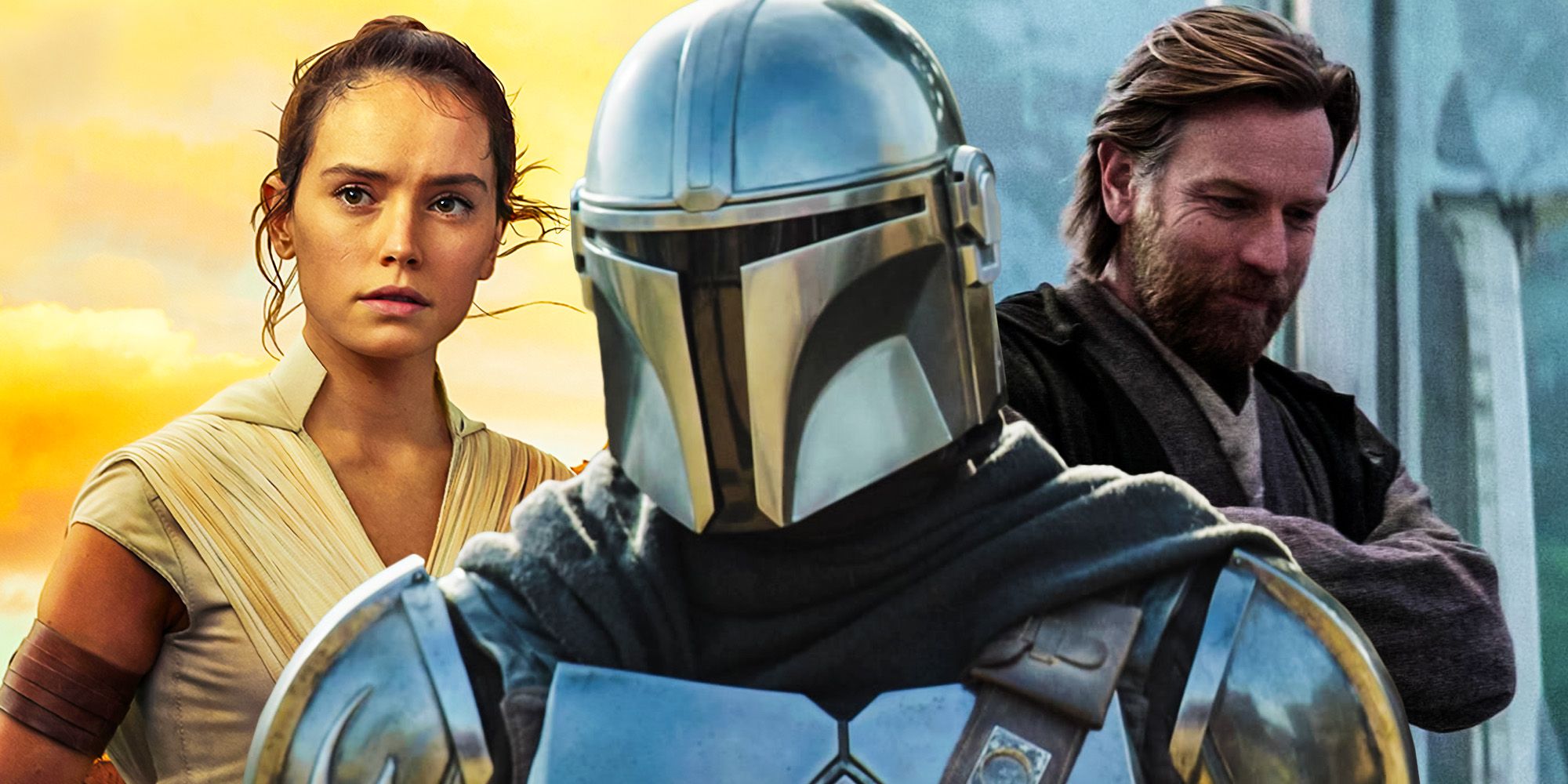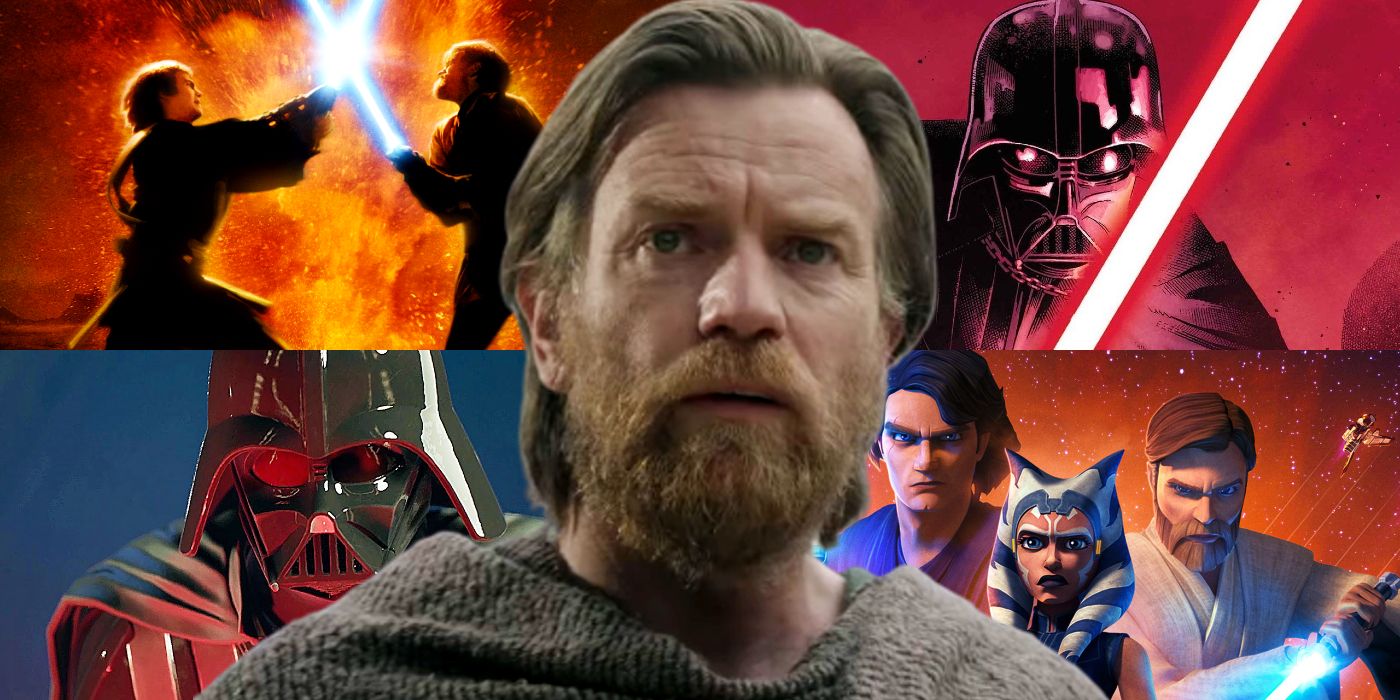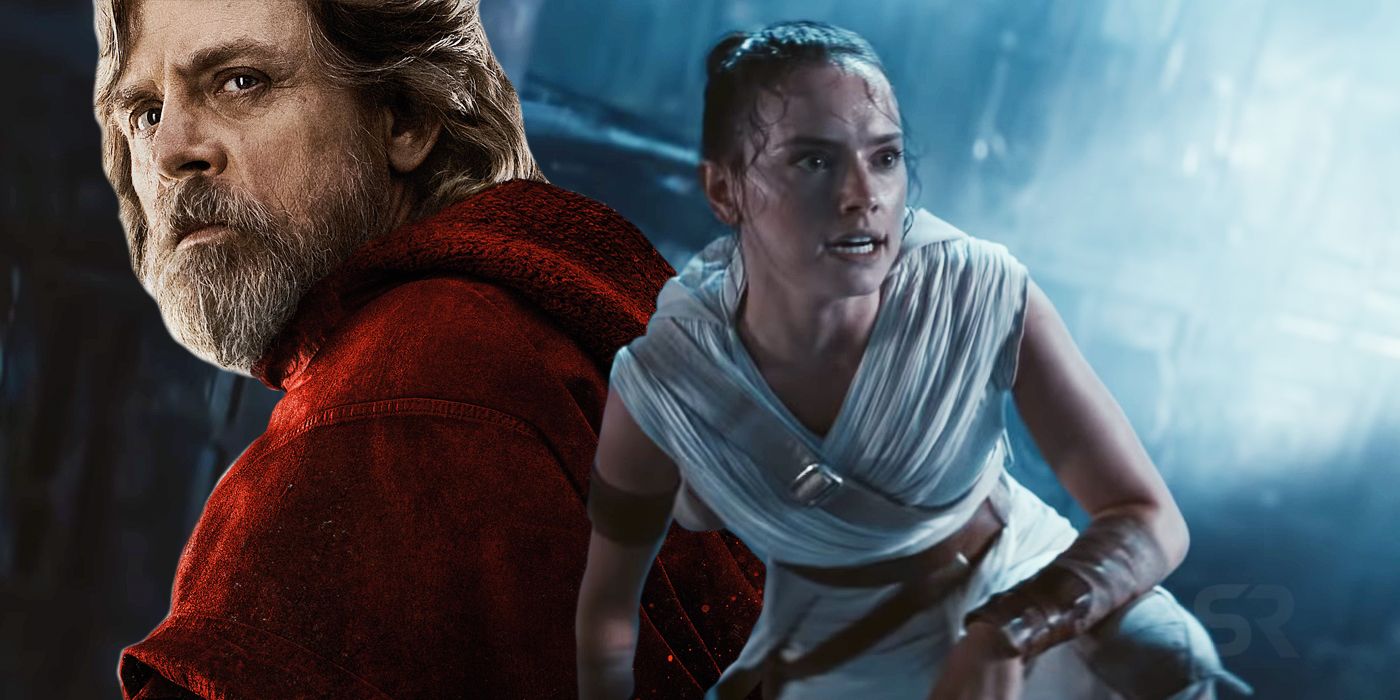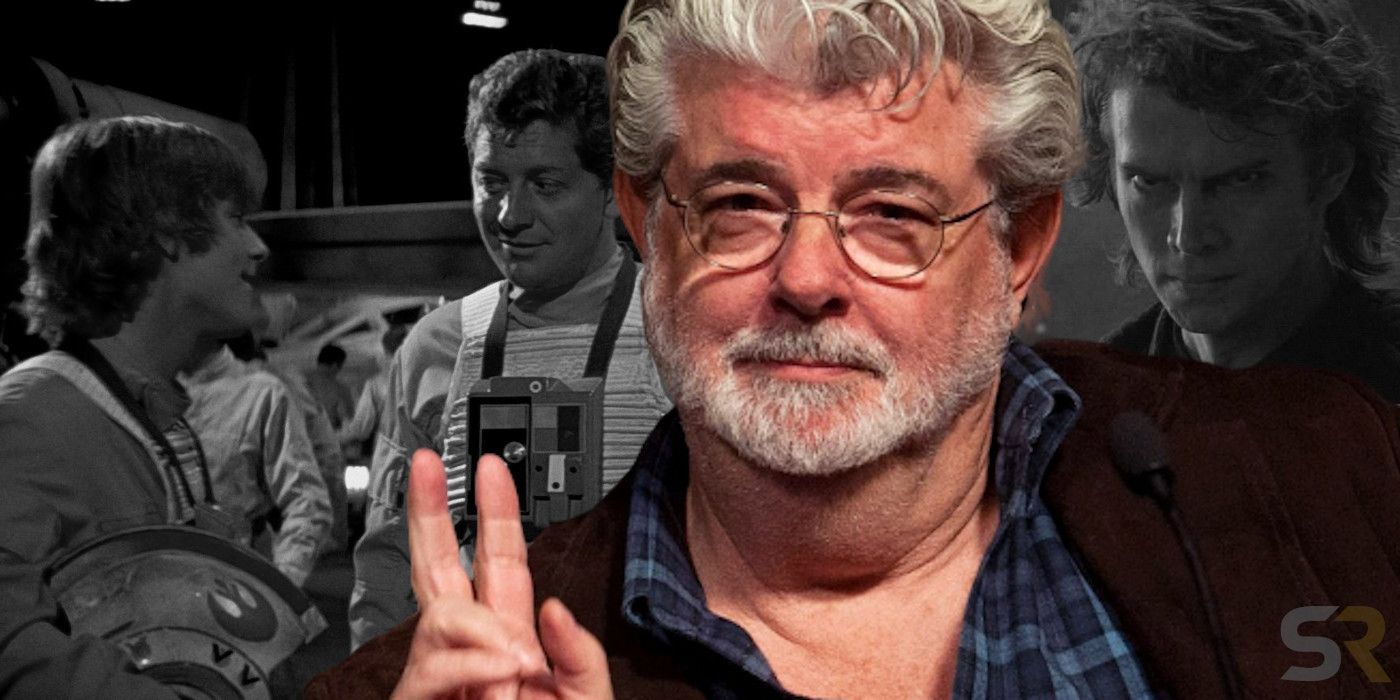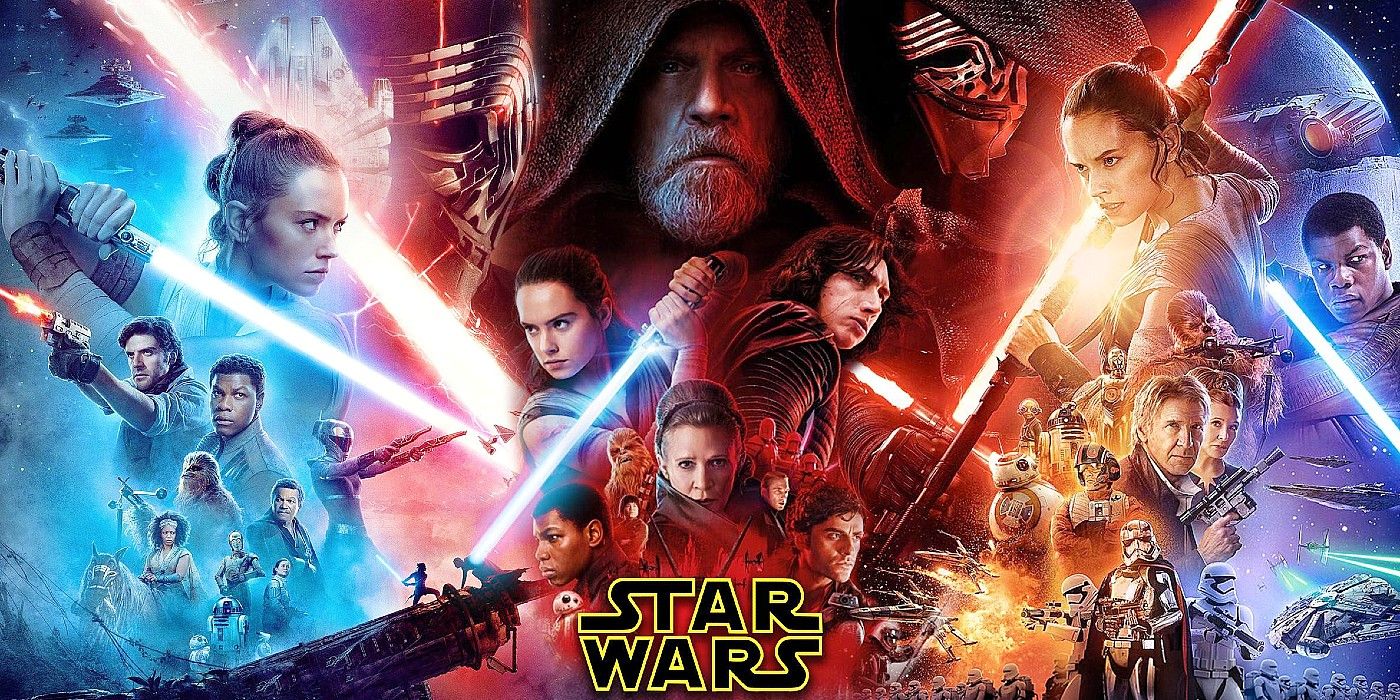Star Wars' recent movies and shows have been too focused on explaining Star Wars. The Disney era of the Star Wars franchise has seen both big hits and big misses, but the franchise's obsession with fixing perceived plot holes or connecting dots in canon is undermining its ability to tell fresh stories.
The George Lucas era of Star Wars transformed Hollywood with some of the most innovative and popular movies in history, but the franchise has always been a magnet for divisive opinions. From complaints about the Ewoks defeating the Empire in Star Wars: Return of the Jedi to Lucas' numerous changes to the original trilogy re-releases to the divisive reaction to the prequels, there's always been a public discourse about what Star Wars is supposed to be, and now Disney faces many of the same problems Lucas did, but for totally different reasons.
While George Lucas was frequently criticized for straying too far from what audiences wanted, Disney's Star Wars is heavily rooted in Star Wars itself, with movies and shows that strive to recapture the feelings audiences got from the more popular elements of Lucas' Star Wars, while avoiding the less popular elements. A certain amount of nostalgia, self-references, and adherence to canon should be expected from any franchise, but Disney and Lucasfilm's fixation on fixing Star Wars will only make the franchise feel smaller and less relevant in the long run.
Disney's Star Wars is Trying Too Hard to "Fix" Star Wars
After Disney acquired Lucasfilm and announced plans to make more Star Wars movies, opinions began to swirl about what those movies should be. The prequels had grown a bit in popularity, but one of the loudest opinions was that Disney should is the opportunity to abandon the prequels. Others wanted more prequel content thanks to the popularity of Lucas' Star Wars: The Clone Wars animated series, while those most hung-up on the prequels even suggested remaking them all together to "fix" the story they believed Lucas ruined.
Star Wars: The Force Awakens kicked off the Disney era with marketing emphasizing how the movie would make people feel like they were watching the original trilogy again, repeatedly highlighting the use of practical effects (despite an abundance of digital work) in what could easily appear to be veiled condemnations of the prequel trilogy. The movie ended up drawing criticism for a plot that was too similar to previous Star Wars movies, and even the opening line felt like a prequel jab, intentionally or not, with Lor San Tekka (Max von Sydow) telling Poe Dameron (Oscar Isaac) "this will begin to make things right," as he handed him a map to find Luke Skywalker.
The attitude that Star Wars needs to be fixed or explained, has permeated most of the movies and shows made in the Disney era of Star Wars. Rogue One: A Star Wars Story arguably threaded that needle the best because even though its premise sounds like the poster child for this criticism, being set in the middle of familiar events in familiar locations with appearances from familiar characters, it kept all that in the fringes, focusing on a story primarily about new characters with connective tissue serving primarily as the backdrop. Star Wars: The Last Jedi almost wears its desire to fix Star Wars on its sleeve, from Luke tossing the Skywalker saber over his shoulder to Kylo Ren urging Rey (and the audience?) to "let the past die," to the "Broom Boy" scene feeling like an overt reaction to midi-chlorians and the idea of the "Chosen One" and the Skywalker bloodline.
Solo: A Star Wars Story, the biggest box office disappointment of the Disney era, had a lot going for it, but ultimately felt like its story was driven by a checklist of things that needed to be explained about Han Solo like how he got his name, how he met Chewie, how he met Lando, how he made the Kessel Run, how he acquired the Millennium Falcon, why C-3PO says the Falcon has "the most peculiar dialect," and etc. The ultimate consequence of this approach is Star Wars: The Rise of Skywalker, a movie that should have been the grand conclusion of a nine-part saga, a trilogy of trilogies, but felt mostly concerned with fixing complaints about The Last Jedi, making nostalgic references, and resolving fan theories.
The Mandalorian was a hit for similar reasons as Rogue One: A Star Wars Story, setting the story in a familiar universe, but introducing characters and events that didn't serve to simply flesh out the backstory of the larger Star Wars canon, at least initially. When season 2 of The Mandalorian arrived, the larger canon connections continued to grow, bringing in Ahsoka Tano and tying Grogu to the prequel era, but even that was still mostly fresh story territory until it introduced Luke Skywalker. It makes sense for Luke to be seeking out Force-sensitives like Grogu, but the way Luke was introduced felt a lot like a reaction to complaints about Luke's depiction in The Last Jedi, compounded by the fact that they didn't even cast an actor to play the role of original trilogy-era Luke and instead created a digital version of young Mark Hamill. This same issue persisted in The Book of Boba Fett, where Luke and Grogu had no real connection to Boba Fett's story, and Luke's dialogue was basically a remix of original trilogy quotes generated by AI based on samples of Mark Hamill's voice.
Disney Learned The Wrong Lessons From Star Wars Backlash
That's not to say the Disney Star Wars movies didn't do anything fresh or inventive for the franchise. Star Wars: The Last Jedi is an interesting case of Lucasfilm trying to break away from the shadow of George Lucas' Star Wars, but in its attempt to push Star Wars forward, it was firmly rooted in the past, defining itself in opposition to what came before instead of actually moving beyond it, all while resetting the galaxy the same familiar Rebels vs. Empire situation Disney thought fans wanted more of. Subversive storytelling isn't inherently a problem, even a lot of Lucas' Star Wars was subversive, but The Last Jedi's subversion bordered on self-aware at times, with real-world perceptions of the franchise having as much influence on The Last Jedi's character decisions as past Star Wars canon.
Ironically, Disney learned the wrong lesson from the backlash to Star Wars: The Last Jedi, and instead of actually following through on Kylo Ren's plea to let the past die, Star Wars: The Rise of Skywalker was totally re-engineered to serve as a course correction, meaning all three sequel trilogy movies were designed on some level to "make things right" to anyone upset about something from a previous movie. When storytelling decisions are influenced by public perceptions of the franchise instead of what's best for the story itself, it undermines the drama and immersion by making the movie feel more like it's a part of the discussion than a piece of art or entertainment.
Disney's Focus on Explaining Star Wars Misunderstands George Lucas' Approach
George Lucas' constant tinkering with the original trilogy and expansion of the prequel era with The Clone Wars has been characterized as the franchise creator attempting to explain Star Wars and "fix" complaints about things like the prequels, but success in that area was an unintended consequence. His changes to the original trilogy films have notoriously drawn complaints from fans, but that never deterred him. He had the resources to make virtually whatever changes he wanted and had complete control over re-releases, refusing to release remastered versions of the original theatrical cuts (which apparently exist) despite popular demand. The prequels are a similar story. Audiences wanted something that felt more like the original trilogy, but instead, Lucas delivered something aesthetically and tonally different from the original trilogy, doubling down on the approach for the whole trilogy despite scathing reviews and fan outcry.
All six Lucas Star Wars movies only had low to modest budgets for their times, but still pushed technical boundaries while also playing with an inventive approach to story structures and genre. The Disney sequel trilogy is visually impressive and innovative in many ways, but they also had much higher budgets relative to Lucas' movies and, as Lucas himself noted, the sequel trilogy doesn't didn't do anything new, anchoring themselves in the original trilogy's aesthetic with iterations on classic designs like stormtroopers, TIE Fighters, and X-Wings. Star Wars has always been self-referential (even more so if you buy into Star Wars Ring Theory), but Lucas was still pushing the story and technology forward to new horizons. The prequels could have been a simple paint-by-number approach, but Lucas colored outside the lines a lot, much to the chagrin of some critics and audience segments. Most of the bigger plot points were well-known inevitabilities, such as Anakin becoming Darth Vader and the rise of the Empire, but he was also criticized for throwing curveballs at the lore, such as midi-chlorians the Chosen One prophecy, totally recontextualizing Vader's role in the original trilogy.
Lucas didn't change his approach to the prequels in reaction to audience or critic feedback, keeping Jar Jar Binks in a significant prequel role, doubling down on midi-chlorians, and maintaining the prequel aesthetic. Even The Clone Wars, which is often credited for "fixing" the prequels, basically thumbs its nose at canon, introducing Ahsoka Tano as Anakin's previously unmentioned Padawan, tripling down on hated prequels elements like Jar Jar Binks and midi-chlorians, and blowing the concept of the Force wide open with Mortis or the Force Priestesses. The Clone Wars didn't get people to appreciate the prequels with reactionary retcons, but by expanding the boundaries of the Star Wars universe and story so viewers could evaluate the prequels in a new light instead of simply comparing them to the Star Wars stories that came before.
Disney Has Lost the Big Picture of Star Wars
Not even the Disney+ shows are immune. The Mandalorian starts to break out of the bubble, but quickly becomes a lore vehicle, filling in the blanks between existing stories. The Book of Boba Fett is about an established character, but still had the opportunity to push in a new direction since almost nothing was known about Boba Fett after Star Wars: Return of the Jedi in Disney canon. Unfortunately, one of the show's biggest criticisms is that it sidelined Boba Fett in favor of servicing The Mandalorian's story. Obi-Wan Kenobi had a similar opportunity, despite the constraint of Obi-Wan being a hermit on Tatooine (a planet prominently featured in every Disney+ Star Wars show so far), but the story that takes him off-planet again is about him rescuing the Skywalker family and fighting Darth Vader, simultaneously attempting to redeem aspects of the prequels and explain things about the original trilogy that never needed explaining, such as why Obi-Wan told Luke Vader murdered his father. This doesn't mean Star Wars shouldn't even glance in the direction of Luke Skywalker, Boba Fett, or Tatooine, as there's still plenty of space to tell stories in the established sandbox, but it does make the location emblematic of Disney's insistence on retreading familiar franchise territory.
George Lucas didn't make Star Wars better by going back and fixing stories he already told, or using every story to explain the mysteries presented by a previous story. He made it better by continually pushing the story forward (despite audience demands for the familiar), exposing more of the big picture of the galaxy far, far away. Disney's habit of using every Star Wars story to explain a gap in lore or fix a plot hole or make a familiar canon reference makes the universe feel smaller when every story should make it feel bigger. This approach to Star Wars impacts a number of other creative decisions as well, such as the use of a digitally recreated young Luke Skywalker for The Mandalorian instead of casting a new actor, a decision seemingly driven by the reactions to Alden Ehrenreich and Solo: A Star Wars Story. When Luke Skywalker is a deep fake with an AI-generated voice created using audio of Mark Hamill in past Star Wars projects, the story begins to feel more like it's more inspired by social media reactions or a checklist of events from a wiki page than it is by Joseph Campbell or Arthurian myth or John Ford westerns or Kurosawa samurai movies or Flash Gordon or any of Lucas' myriad inspirations.
Some of the most common sentiments about how Disney's should approach the franchise include phrases like "make it feel like Star Wars" or "recapture that Star Wars magic," but those phrases can mean drastically different things to different people. Star Wars certainly has its iconic touchstones from the lore to the aesthetic to the music, but at its heart, Lucas' constantly expanding Star Wars galaxy contained the potential for anything to happen. A farmboy can save the galaxy, a smuggler can win the love of a princess, and a rebellion can defeat an empire. Luke Skywalker grew up as a nobody on Tatooine, a planet he describes as being the farthest from a hypothetical bright center of the universe, but each step he takes into a larger world reveals something bigger than before. George Lucas shaped a fictional galaxy big enough for everyone to find something to love, and if Disney and Lucasfilm can stop trying to fix Star Wars, they might just recapture that Star Wars magic.

